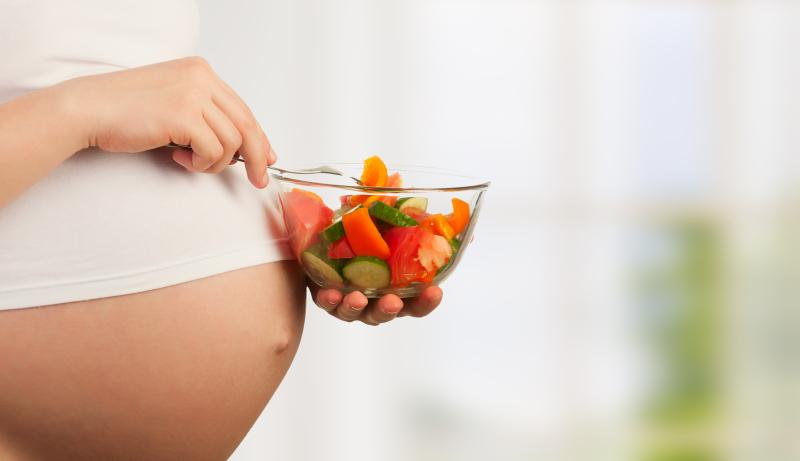
A smartphone app for food coaching may help overweight and obese pregnant women control their weight gain and cholesterol intake, according to a recent Singapore study.
“Although our pilot results were not significant, it provided proof of concept for the feasibility of applying such technology in future [randomized controlled trials (RCTs)] with a larger sample size, an earlier intervention onset, and a longer follow-up for overweight and obese pregnant women,” the researchers said.
Thirty overweight and obese pregnant women were randomly assigned to receive standard pregnancy dietary recommendations either alone (mean age, 30.7±5 years) or with the smartphone-based coaching intervention (mean age, 29.3±4.4 years). Of the 12 accomplished evaluation forms, all but one noted that the app had somewhat or greatly improved their diets. [JMIR Form Res 2019;3:e13013]
After 4 weeks of follow-up, more participants in the intervention group met the Institute of Medicine’s recommendations for gestational weight gain per week than their counterparts in the control group (58 percent vs 53 percent). This trend continued until 8 weeks of follow-up (67 percent vs 36 percent).
Moreover, mothers assigned to receive the smartphone intervention tended to gain less weight than those in the control group after 4 (mean difference, –0.15 kg, 95 percent confidence interval [CI], –1.51 to 1.21) and 8 weeks (mean difference, –0.08 kg; 95 percent CI, –1.80 to 1.63) of follow-up. Neither difference was statistically significant.
Cholesterol intake was likewise nominally lower in the intervention group after 4 (mean difference, –64.87 mg, 95 percent CI, –146.04 to 16.31) and 8 weeks (mean difference, –31.73 mg; –102.91 to 39.45) of follow-up.
“In this small sample RCT, we used a smartphone app to guide overweight and obese pregnant women to eat healthier in order to obtain optimal weight gain,” the researchers said.
“Our findings showed feasibility and acceptability of such a food-coaching smartphone app,” they added, pointing out that 75 percent of their participants found the app easy enough to use, while 80 percent felt that the food coaching happened at a pace that was acceptably fast.
In the present study, all participants were enrolled from a clinic subsidized by a government hospital. The food-coaching smartphone app allowed them to upload photos of their food and receive real-time and detailed food advice and guidance from professional dietitians from 8 AM to 8 PM.
“Our food-coaching app is more flexible and interactive and has greater variety of communication modalities” as compared to the existing technology, the researchers said. “Given the high smartphone usage rate among Singaporeans and high prevalence of overweight and obesity among pregnant women in tertiary hospital settings, use of a mobile app to promote healthy dietary intake is feasible and likely a promising intervention strategy.”
“Although the effect estimates are in the desired direction and supported the proof of concept as the primary focus in this pilot RCT, we still need to further verify the utility of such a smartphone app in a larger targeted population with an earlier phase intervention during pregnancy and a longer follow-up,” they added.